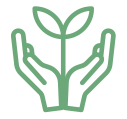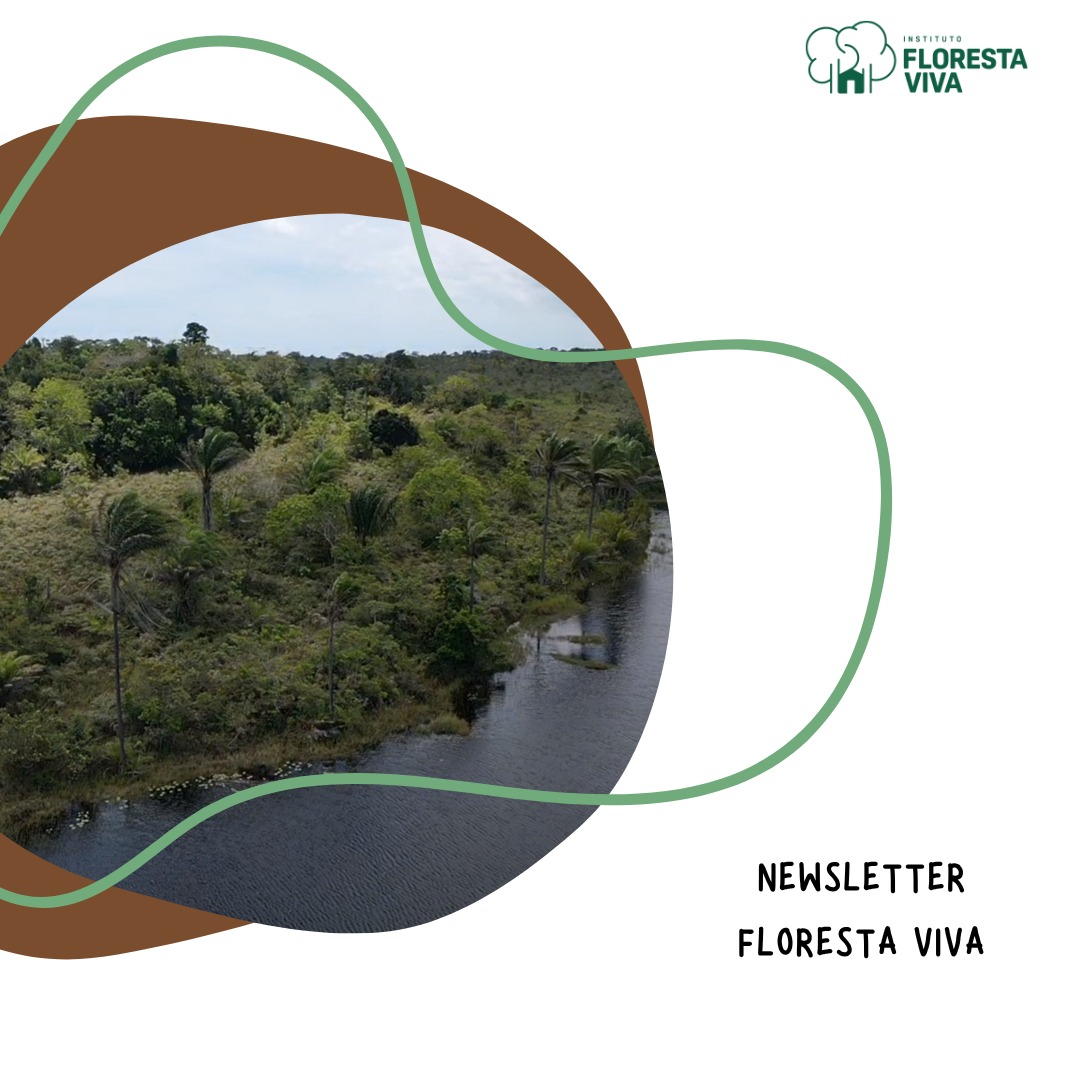Large-scale restoration of the Atlantic Forest is a process that requires knowledge of farming dynamics, as the vast majority of areas available for restoration are found in land used for agriculture and pasture. In order to propose a restoration method of this kind, it is necessary to access information about the ecology of the place and the people who live in it.
Within this context, Brown University in partnership with the Instituto Floresta Viva reuniu brought together a team of environmental and social scientists from Brazil and the United States to gather data on the reasons for and ways of land use in Southern Bahia. The main objective of this research was to discover how to restore rich ecosystems while increasing human well-being. This information was answered by mapping out which areas are most suitable for restoration, both socially and ecologically, and which incentives would be most appropriate and successful for improving human well-being and forest regeneration.
Following this premise, the initial focus of the research was understanding the strategies developed by rural producers, their working conditions and associated vulnerabilities, in the 26 municipalities of the Southern Bahia Coastal Territory, within the Atlantic Forest biome. To this end, 3,000 farmers were interviewed, randomly distributed in 150 census sectors. In each sector, 20 randomly selected rural producers were interviewed, who formed communities. The first action was to document the range of productive activities that are fundamental to family incomes in the region, such as: alternating cropping, livestock, cocoa production, non-agricultural jobs, as well as to diagnose institutional and other barriers to agricultural activities. The second action was focused on proposing six forest restoration models, with monthly payments for ecosystem services, which were constantly evaluated. The research lasted 5 years; three surveys were completed per property (one every 4 months) in the first year and one form per year in the subsequent 4 years. The understanding of land use and farmer’s strategies has been fundamental to design differentiated restoration methods for the Atlantic Forest. Combining the results of the research and technical knowledge from experienced stakeholders with the remarkable local knowledge of the peoples and places of Southern Bahia has given us confidence that the restoration challenge can be met.
An important result of this research was the realization and delivery, in 2020, of the report ‘’Panorama of Cocoa Cultivation in the Southern Bahia Coastal Territory’’(click here to access it). The document was developed by IFV with the support of Cocoa Action Brasil, in response to a collective demand from the Brazilian cocoa sector for data and information on the cocoa value chain.
The report provides rich data related to various aspects of cocoa production and its producers and contributes to an overview of cocoa cultivation in the Southern Bahia Coastal Territory. It also serves as a source of updates for the various actors in the value chain for collective monitoring and sustainable development.
We can cite other developments of this research, like the implementation of some cooperation with public authorities of the municipalities involved, as well as scientific cooperation to carry out academic research, as presented below:
In the year 2022, a cooperation was carried out with the municipalities of the Southern Bahia Coastal Territory , in which the IFV made itself available to provide socioeconomic, agricultural and environmental data for the municipalities that expressed interest in obtaining them to strengthen actions in their agricultural and social development departments. Immediately, the municipality of Coarací-BA expressed interest and, as agreed, the data,specific to the municipality, was made available to the agricultural department. In addition to the provision of data, interpretation and assistance in analytic models are being provided at the request of the municipalities.
In March 2023, a meeting was held to present part of the research results to a multidisciplinary team from the Bahia state government, which is proposing joint discussions to develop action plans and public policies to improve the quality of life of rural producers in the Southern Bahia Coastal Territory.
Scientific Cooperation
Scientific papers that used the survey data:
Lucrezia Nava, Universitat Ramon Llull, ESADE Business School Jorge Chiapetti, State Universidade of Santa Cruz Rui Barbosa da Rocha, State University of Santa Cruz Maja Tampe, Universitat Ramon Llull, ESADE Business School
Lucrezia Nava, ESADE Business School, lucrezia.nava@esade.edu Jorge Chiapetti, Universidade Estadual de Santa Cruz Rui Barbosa da Rocha, Universidade Estadual de Santa Cruz Maja Tampe, ESADE Business School
Course Conclusion Theses (TCCs for their acronym in Portuguese):
Production of fine cocoa in the Southern Bahia coast: characterization and reality.
Vitor Luis Santos Silva; Supervisor: Jorge Chiapetti; Co-Supervisor: Alessandro Santos da Conceição; Department of Agricultural and Environmental Sciences, State Universidade of Santa Cruz (UESC)
Characterization of the agricultural systems of indigenous communities.
Larissa Pinto Magalhães; Supervisor: Jorge Chiapetti; Co-Supervisor: Alessandro Santos da Conceição; Department of Agricultural and Environmental Sciences, State Universidade of Santa Cruz (UESC)
Typification of the cocoa market: cocoa commerce channels.
Danillo José dos Santos; Orientador: Jorge Chiapetti; Coorientador: Alessandro Santos da Conceição; Department of Agricultural and Environmental Sciences, State Universidade of Santa Cruz (UESC)
High productivity of cocoa in Southern Bahia: characteristics of the properties and technologies employed.
Nikary Soares Santos; Supervisor: Jorge Chiapetti; Co-Supervisor: Alessandro Santos da Conceição; Department of Agricultural and Environmental Sciences, State Universidade of Santa Cruz (UESC)
Master’s dissertations:
Productive and edaphic aspects of cacao-cabruca in the Southern Bahia coastal territory.
Dissertation presented by Alessandro Santos da Conceição; Supervisor: Eduardo Gross; Co-Supervisor: Jorge Chiapetti Postgraduate Program in Plant Production (PPGPV) State University of Santa Cruz (UESC)
Production of superior quality cocoa in Brazil:
An evaluation of the producer profile in the main producing region of the country. Alessandro Santos da Conceição; Postgraduate Program in Plant Production (PPGPV) State University of Santa Cruz (UESC)
Management practices and the cocoa tree productivity in the Southern Bahia coast identity territory.
Dissertation presented by Tayrone da Rocha Moreira; Supervisor: José Olímpio de Souza Júnior. Co-Supervisor: Jorge Chiapetti Postgraduate Program in Plant Production (PPGPV) State University of Santa Cruz (UESC)
Production and commercialization of piaçava palm tree fiber (Attalea funifera Mart.) in the southern region of Bahia: a diagnostic study..
Dissertation presented by Daniel Bomfim da Silva Dias Supervisor: Prof. Dr. Fábio Pinto Gomes Coorientador: Jorge Chiapetti
Different types of cabruca systems in the Southern Bahia cocoa region: sustainability parameters (PAH) and economic profitability..
Alícia Báfica Silva; Supervisor: Andrea da Silva Gomes, Co-Supervisor: Jorge Chiapetti ; regional Development and Environment Program- PRODEMA- UESC
Post Doctoral Thesis:
Overview of the types of propagative materials used by cocoa producers in southern Bahia. PhD Candidate: Prof. Dr. Luís Carlos Cirilo Carvalho Supervisor: Prof. Dr. José Olímpio de Souza Júnior
Research Contribution:
Cocoa mapping in Southern Bahia. Project Coordination: Deborah Farias Laboratory of Applied Ecology for Conservation - LEAC State University of Santa Cruz - UESC
Promoting biodiversity, conservation and economic sustainability in the cocoa sector PHD Candidate: Steffi Anna Marie Dekegel Supervisor: Prof. Dr. Leonardo Oliveira (State University of Santa Cruz) Co-supervisor: Kristel De Vleeschouwer (BioBrasil Project/Antwerp ZOO Center for Research and Conservation, Belgium) & Goedele Van den Broeck (Université catholique de Louvain, Belgium)





